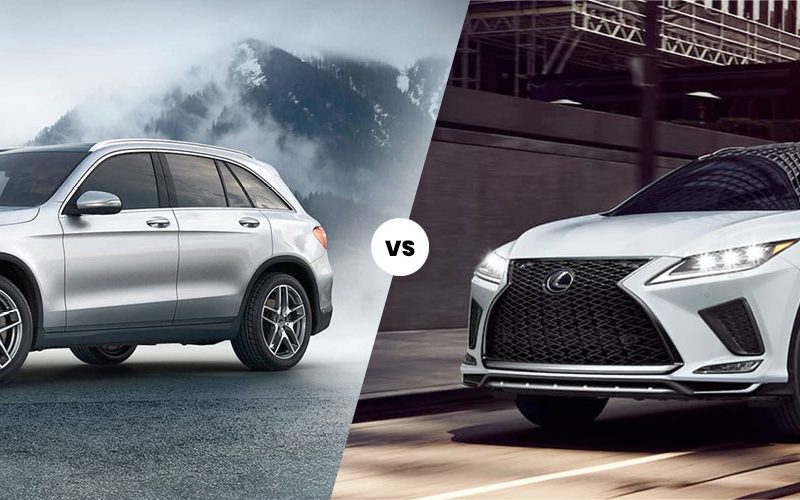When it comes to indulging in luxury, few brands command as much reverence and admiration as Lexus and Mercedes-Benz. These automotive titans have long been synonymous with opulence, sophistication, and cutting-edge technology. However, the decision of whether to lease or purchase a vehicle from these prestigious manufacturers can be a daunting one. In this article, we will delve into the pros and cons of both options, offering insights to help you make an informed choice.
Leasing: The Appeal of Flexibility

Leasing a Lexus or Mercedes-Benz offers unparalleled flexibility, making it an attractive option for those who prefer to upgrade to newer models every few years. With a lease, you typically pay a lower monthly payment compared to financing a purchase since you’re only paying for the vehicle’s depreciation during the lease term. Additionally, leasing often requires a lower upfront payment, making it more accessible to many luxury car enthusiasts.
Financial Considerations and Resale Value
In addition to the features and reputation of each brand, it’s crucial to consider the financial aspects and resale value when deciding between leasing and purchasing. While leasing offers lower monthly payments and may seem more budget-friendly in the short term, purchasing allows you to build equity in the vehicle and potentially benefit from its resale value down the line. Luxury vehicles, such as those offered by Lexus and Mercedes-Benz, often hold their value well, particularly if properly maintained. By factoring in long-term financial considerations and resale value projections, you can make a decision that not only aligns with your lifestyle and preferences but also provides a sound investment for the future.
Pros of Leasing
- Lower Monthly Payments: Leasing generally results in lower monthly payments compared to financing a purchase, allowing you to drive a luxury vehicle for less.
- Access to Newer Models: Leasing enables you to regularly upgrade to the latest models, ensuring you always have access to cutting-edge technology and features.
- Limited Maintenance Costs: Since leased vehicles are typically covered by the manufacturer’s warranty during the lease term, you may encounter fewer unexpected maintenance expenses.
Cons of Leasing
- Mileage Restrictions: Most lease agreements come with mileage restrictions, and exceeding these limits can result in costly overage fees.
- No Ownership Equity: Unlike purchasing a vehicle, leasing does not allow you to build equity in the vehicle or have ownership at the end of the lease term.
- Penalties for Wear and Tear: Lease agreements often stipulate penalties for excessive wear and tear, potentially adding to the overall cost of the lease.
Purchasing: The Long-Term Investment
Purchasing a Lexus or Mercedes-Benz provides a sense of ownership and the opportunity to build equity in the vehicle over time. While purchasing typically entails higher monthly payments and a larger upfront investment, it offers long-term financial benefits and the freedom to customize or modify the vehicle to your liking.
Pros of Purchasing
- Ownership Equity: When you purchase a vehicle, you have the opportunity to build equity over time, eventually owning the car outright.
- No Mileage Restrictions: Unlike leases, there are no mileage restrictions when you own a vehicle, providing greater freedom for travel and exploration.
- Customization Options: Purchasing allows you to customize the vehicle to your preferences, from aesthetic modifications to performance upgrades, without restrictions imposed by a lease agreement.
Cons of Purchasing
- Higher Upfront Costs: Purchasing a luxury vehicle typically requires a larger upfront investment compared to leasing, including a down payment and taxes.
- Depreciation Concerns: Luxury vehicles, like all cars, experience depreciation over time, potentially diminishing the vehicle’s resale value.
- Higher Monthly Payments: Financing a purchase often results in higher monthly payments compared to leasing, which may be less feasible for some budgets.
Comparative Analysis: Lexus vs. Mercedes-Benz
To aid in your decision-making process, let’s compare the leasing and purchasing options for Lexus and Mercedes-Benz vehicles:
| Aspect | Leasing | Purchasing |
|---|---|---|
| Monthly Payments | Lower | Higher |
| Upfront Costs | Lower | Higher |
| Ownership | No ownership at end of lease term | Build equity and own outright |
| Mileage Restrictions | Yes | No restrictions |
| Customization | Limited to lease terms | Freedom to customize |
| Long-Term Value | No equity, no ownership | Potential for equity, ownership |
| Depreciation Concerns | Limited, as you return the car | Potential depreciation affects resale |
Conclusion
Deciding whether to lease or purchase a Lexus or Mercedes-Benz involves considering your personal preferences, financial situation, and long-term goals. Leasing offers flexibility and lower monthly payments but comes with restrictions and no ownership at the end of the lease term. Purchasing, on the other hand, provides ownership equity and customization options but requires a higher upfront investment. By weighing the pros and cons outlined in this article and considering your individual needs, you can make an informed decision that aligns with your lifestyle and preferences in the realm of luxury automotive indulgence.












